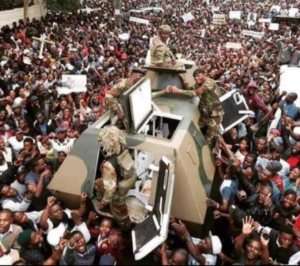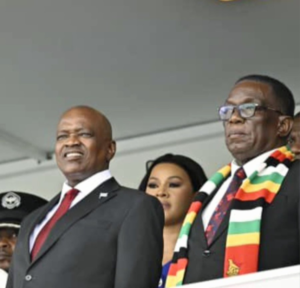ZIMBABWE’S ECONOMIC QUAGMIRE: IMF URGES RADICAL FOREX MARKET REFORMS

In a striking development, the International Monetary Fund (IMF) has issued a clarion call to Zimbabwe, urging the government to overhaul its foreign exchange (forex) market policies amidst an escalating economic crisis. The beleaguered Zimbabwe dollar (Zimdollar) has seen its stability severely eroded, depreciating by an alarming 95% since the onset of December 2023. This dire financial strait has propelled the IMF to advocate for reforms that are “more transparent and market-driven,” a stark departure from the current, beleaguered system.
The heart of the IMF’s counsel lies in the necessity for Zimbabwe to introduce forex market reforms that would not only stabilize the Zimdollar but also lay the groundwork for sustainable economic recovery. The current scenario has the official Zimdollar exchange rate in a freefall, a situation that has severe implications for the nation’s economic health. The IMF’s advice comes at a critical juncture, highlighting the urgent need for a more transparent and efficient exchange rate mechanism that could salvage the deteriorating situation.
Moreover, the IMF has pinpointed the restrictive measures placed on the allowable trading margin for pricing domestic transactions—capped at 10%—as a significant impediment. This limitation has been a source of considerable distress within the business sector, rendering companies vulnerable to financial instability, and in many cases, pushing them to the brink of bankruptcy. The call to eliminate these restrictions is seen as a vital step towards providing businesses with the flexibility needed to navigate through the economic turmoil.
The IMF’s recommendations do not stop at market reforms. They extend to the establishment of an “effective framework for exchange rate and monetary policies.” This framework is envisioned as a cornerstone for achieving economic stability and fostering a conducive environment for sustainable growth. It underscores the necessity of aligning monetary policies with market dynamics, ensuring that exchange rates reflect the true value of the Zimdollar and thereby restoring confidence in the national currency.
Addressing the underlying sources of fiscal pressures is another critical aspect of the IMF’s advice. Zimbabwe’s fiscal challenges have been a persistent issue, exacerbating the currency crisis and hindering economic recovery. By tackling these root causes, the IMF believes that Zimbabwe can pave the way for a more stable and prosperous economic future.
The implications of the IMF’s recommendations are profound. By adopting more transparent and market-driven forex policies, Zimbabwe has the opportunity to stabilize its currency, enhance business viability, and lay the foundation for economic recovery. However, this path is fraught with challenges. Implementing such reforms requires political will, strategic planning, and a commitment to long-term economic stability.
As Zimbabwe grapples with these recommendations, the international community watches closely. The success or failure of these proposed reforms will not only determine the fate of the Zimbabwe dollar but also the country’s economic trajectory in the years to come. The journey ahead is uncertain, but one thing is clear: the status quo is untenable, and radical reforms are essential for Zimbabwe’s economic revival.
The call from the IMF is a wake-up call for Zimbabwe, signaling that the time for half-measures and temporary fixes is over. It’s a call to action for comprehensive reforms that are transparent, market-driven, and capable of restoring economic stability and confidence in the Zimdollar. As Zimbabwe charts its course, the decisions made today will undoubtedly shape its economic landscape for generations to come.



